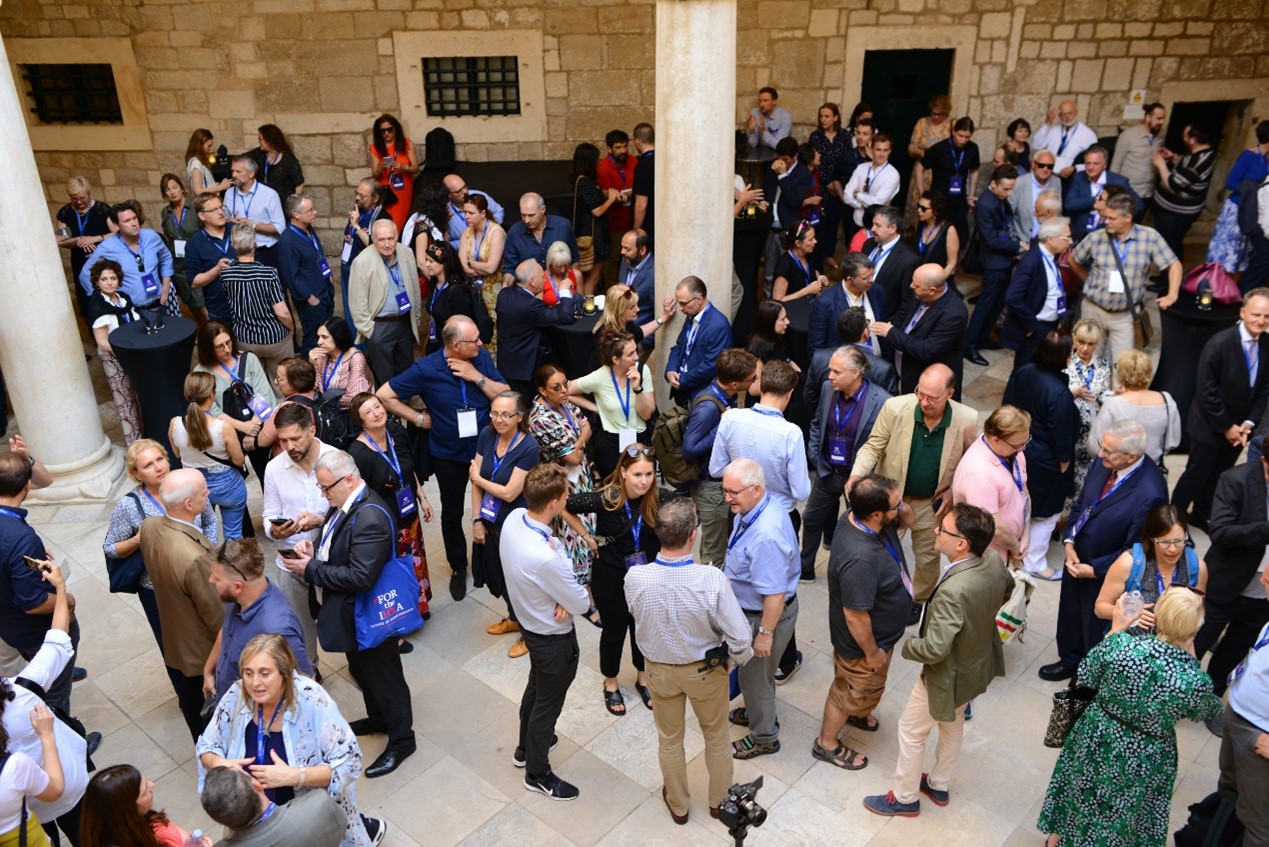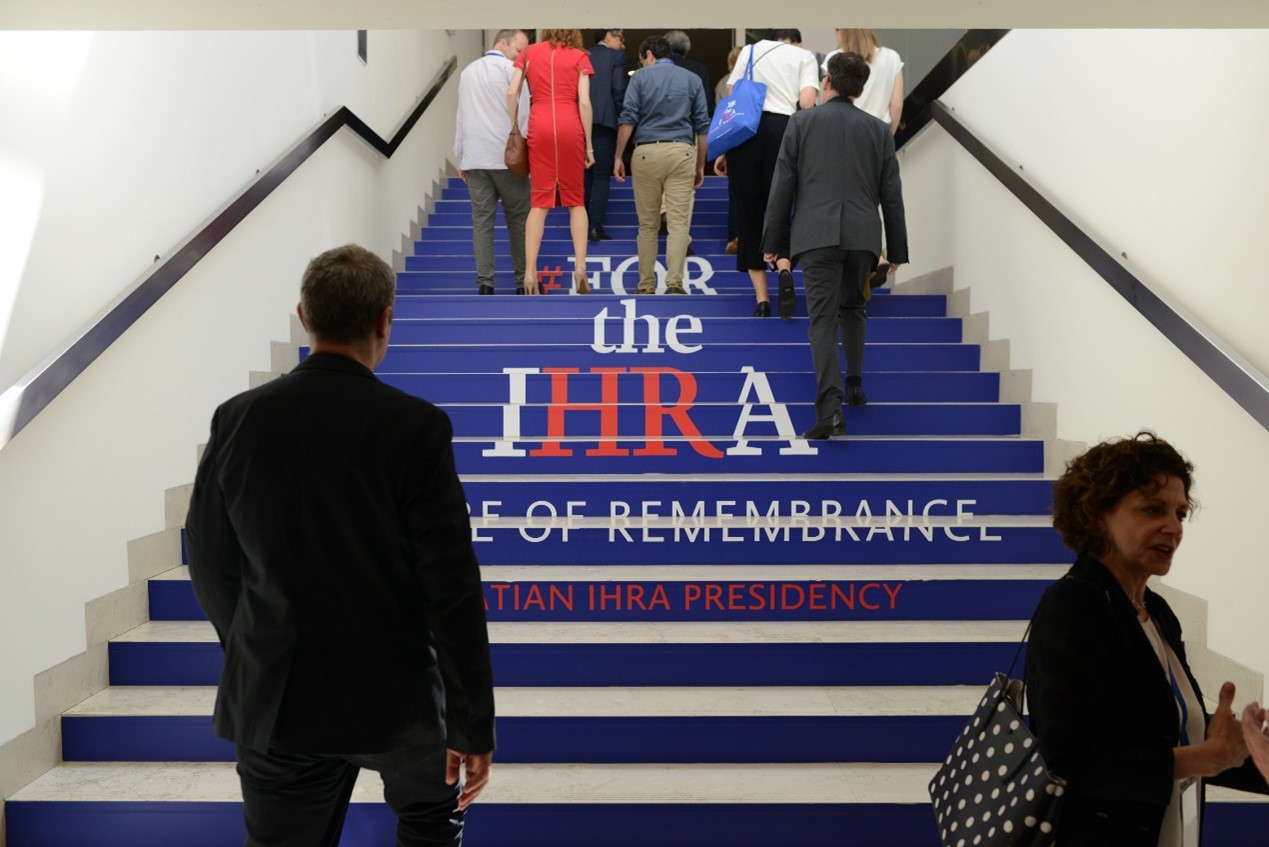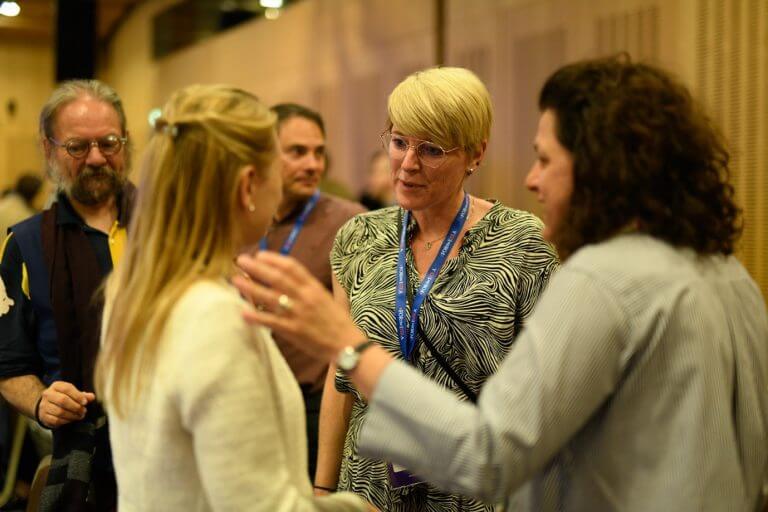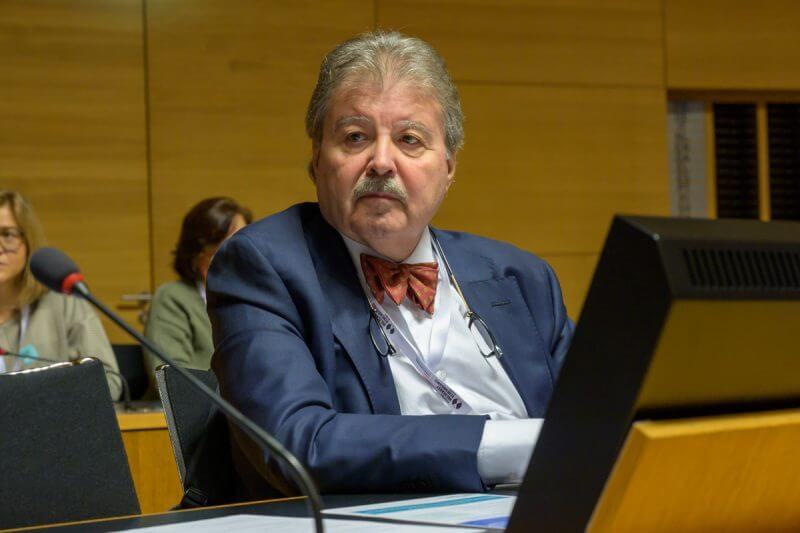
New eyes on the IHRA Plenary
“Just a second, let me please say hi to Hannah Lessing” – the Secretary General of the National Fund of the Republic of Austria for Victims of National Socialism. This may be Iris Rosenberg’s first IHRA Plenary, but she is far from new to the International Holocaust Remembrance Alliance.
“The IHRA is a vital international forum for Holocaust remembrance,” she says during one of the Dubrovnik Plenary coffee breaks. “One of its strengths is that it’s very much based in and composed of experts.” Iris is herself an expert in communicating the history and memory of the Holocaust. She has served as Yad Vashem’s spokesperson for 26 years, and is currently the Director of its International Affairs and Communications Division. She is in a unique position to further advance an international approach to Holocaust remembrance, something she has advocated for since beginning at this prestigious institution.
“The Holocaust, the Shoah, of course is what befell the Jewish people, but the importance and role of Holocaust remembrance, and the influence it needs to have must be on a global level,” she says. “Holocaust remembrance needs to always remain part of international discourse. Because of all its unique aspects, because it was a collapse of human civilization, because it has universal human meaning. This is why the IHRA is so important.”

IHRA delegates at the Rector's Palace in Dubrovik, Credit: DarPro
Iris joins the Israeli delegation at a time when threats to Holocaust remembrance are mounting, when social media has become a forum for antisemitism and a catalyst for its spread. Communications, she stresses, is important for each of the IHRA’s expert Working Groups and Committees. Her expertise comes at a critical moment for the field. “There is no magical way to tackle these issues. This world is very tricky – things are changing so fast, and you need to stay updated.” She should know. Iris was part of the joint effort by Yad Vashem and the Israel Democracy Institute (IDI) to develop a series of recommendations and principles to help providers tackle the immense and deeply complex problem of online hate speech, and the proliferation of antisemitism, Holocaust denial, and Holocaust distortion online. “Having experience here is important to show these companies that you’re not letting them go. But also to find new angles and ways to tackle the problem,” she says.
For Iris, addressing these challenges means taking an international and interdisciplinary approach – and that means networking. “Networking is crucial to Holocaust remembrance,” she says. “And the IHRA really brings people together from so many countries – it’s really more than just the 35 Member Countries – and this helps you see how others have dealt with the challenges you have, too, and exchange good practices. It helps you establish partnerships. This strengthens your ability to do things across borders and across languages. The whole is greater than the sum of its parts.”

Credit: DarPro
Iris has already begun strengthening coalitions and gathering examples of good practice both during informal discussions over coffee, as well as during formal presentations and working sessions in the expert Working Group and Committee meetings. The insights from a presentation during the Museums and Memorials Working Group by Dr. Stefania Manca and Prof. Silvia Guetta of the University of Florence reverberated far beyond practical solutions to countering Holocaust distortion on social media. Their IHRA Grant project, which looked at how to flood the internet with accurate, fact-based information on the Holocaust, illustrated again for Iris how Yad Vashem’s approach to online distortion reinforces a principle she learned from a former colleague: “to always make this information relevant to the public, but respectful to the topic.” This is a principle she says is also reflected throughout the Croatian IHRA Presidency’s first Plenary meetings. “Everything is so well-organized and you can see the dedication of the Co-Chairs and that they have put their mind and soul into it. I can see how the branding has been given the importance it needs. People think branding is just the wrapping, but it’s not – it’s the glue.”
It’s difficult for Iris and her colleagues in the Israeli delegation not to think about 2025, when Israel will hold the IHRA Presidency, and how she can use her background in communications to support that process.
But for now, Iris says, “I came here to learn as much as I can.”
Sign up to our newsletter to
receive the latest updates
By signing up to the IHRA newsletter, you agree to our Privacy Policy



